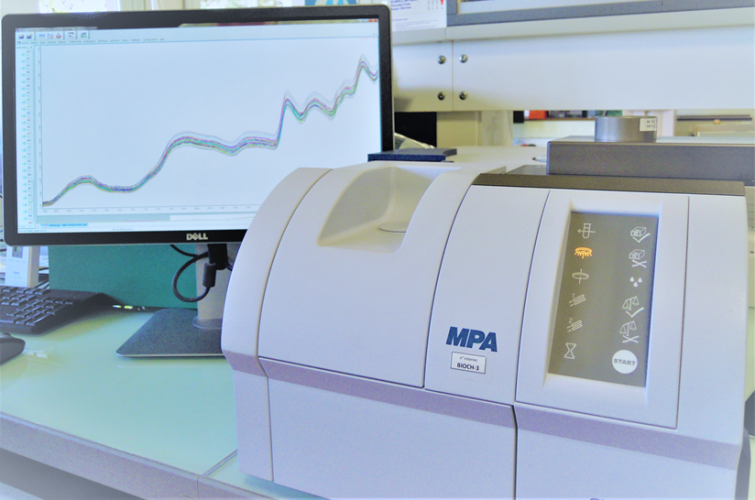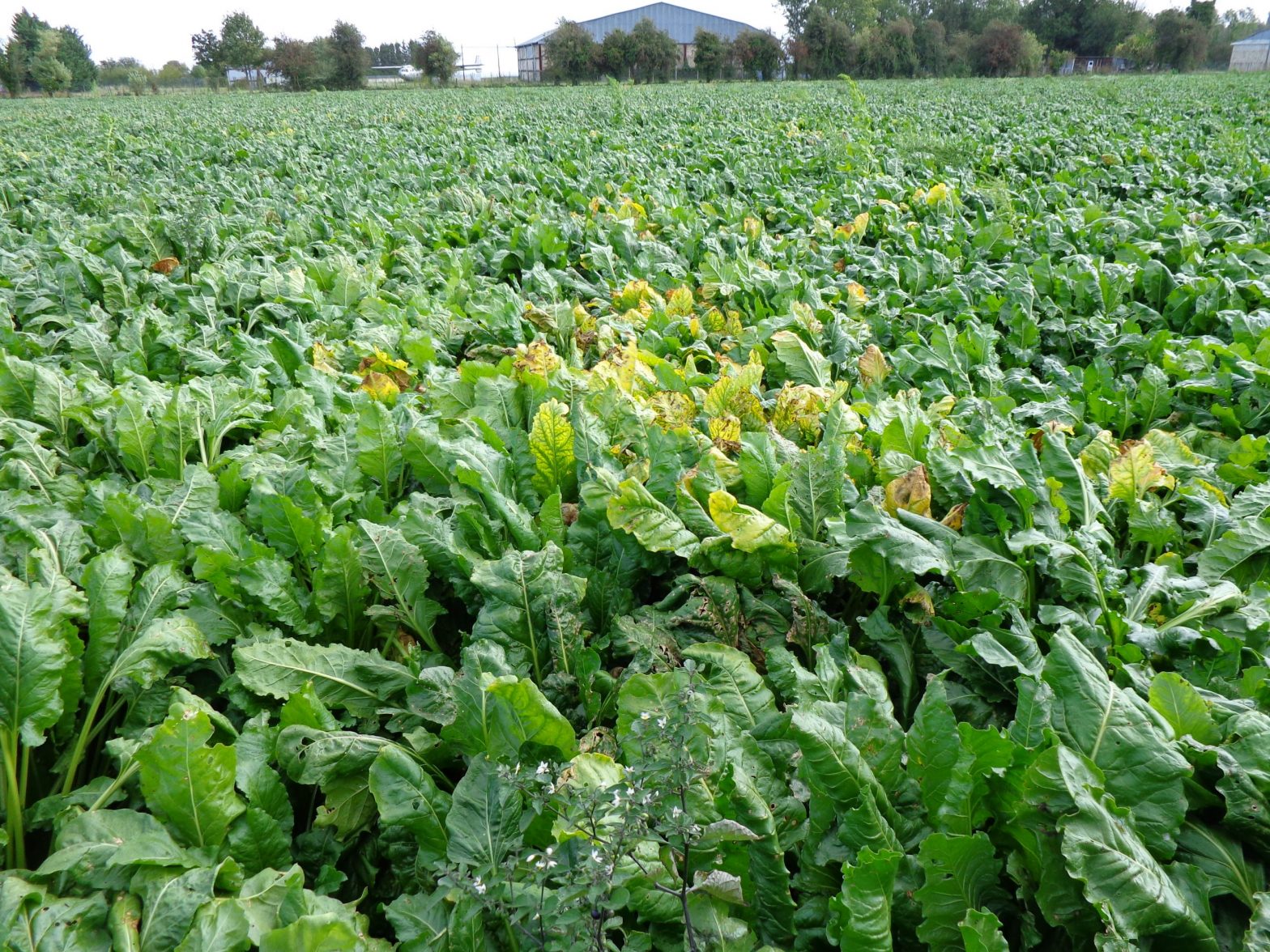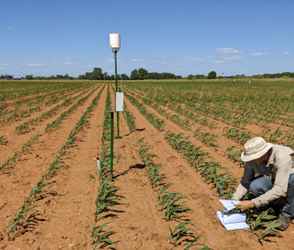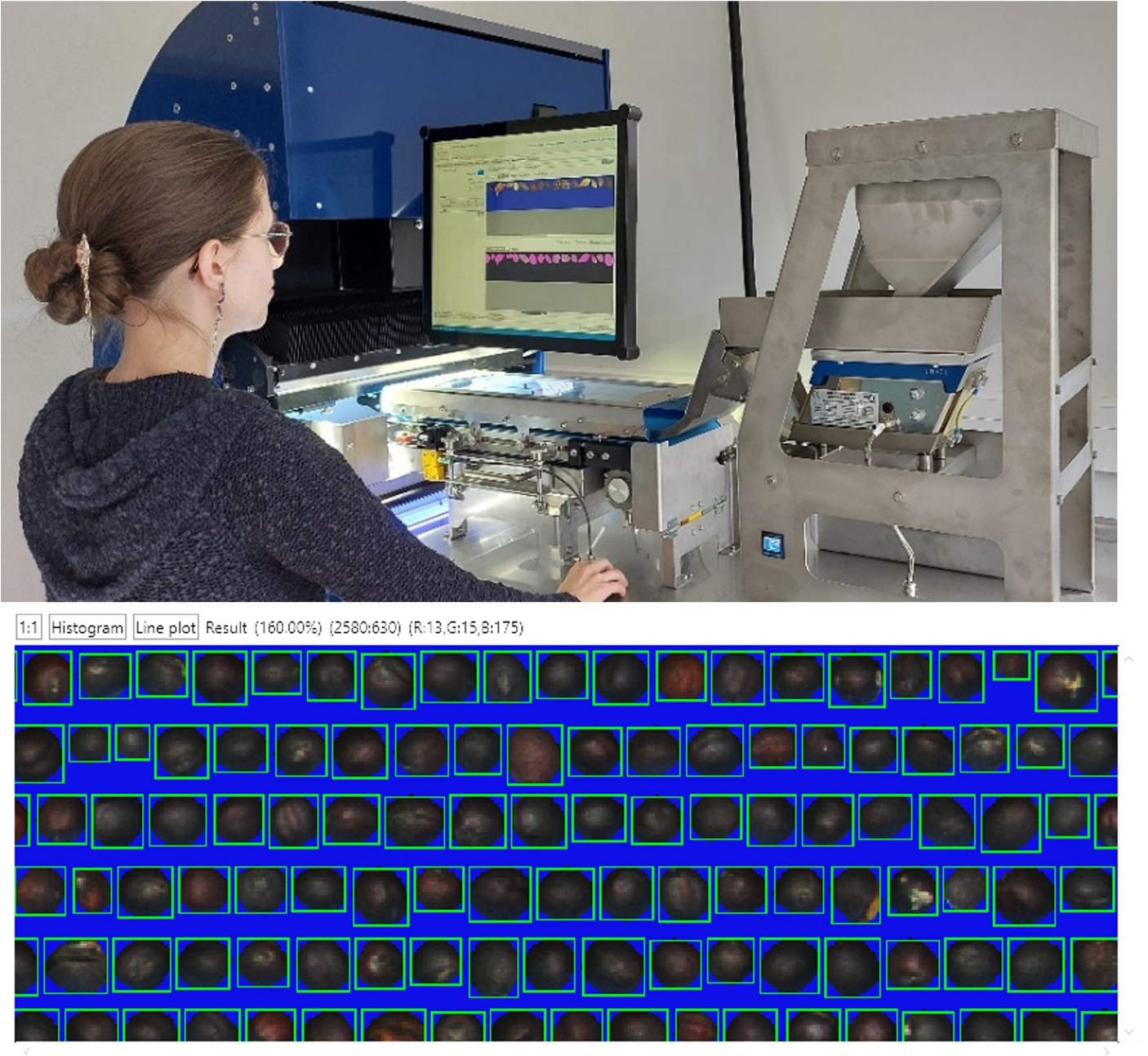Performance and value of new plant varieties
The changing and more diverse agricultural conditions, together with changing growing conditions (linked to climate change) in France, has led to a reflection on how to assess the performance and value of new varieties. Existing testing structures and methods need to be adapted to obtain more pertinent data.
Climate change will lead to great and unpredictable variations in weather conditions on a year to year basis. This, together with a transition in Europe towards a more agro-ecological way of farming, means that plant varieties must be adapted to more varied agicultural practices, and that their value and performance must be assessed in relation to both of these changes.
Different methods are being tested for the characterization of biotic and abiotic stresses, plus associated varietal responses. It is also necessary to develop statistical tools for the analysis of genotype x environment (GxE) interaction, and modelling to evaluate varietal behaviour. In order to optimise the use of data collected, the sharing of variety and environmental data will require appropriate storage and dissemination-consultation methods.
Within the context of significant reduction in the use of pesticides, the sustainability of resistance to pests and diseases must become a key issue in variety evaluation. This gradual decrease in the use of pesticides, together with climate change has lead, and will continue to lead, to the rapid emergence of certain pathogens. GEVES intends to remain reactive to the fast changing needs for resistance tests and the identification of the tolerance of varieties to pests and diseases.
GEVES is currently carrying out research to evaluate the technological quality of varieties, in particular through the use of NIRS and NMR, which are analytical techniques for the qualitative and quantitative measurement of biochemical constituents. In addition to this, GEVES aims to acquire techniques to establish chemical profiles determining the organoleptic composition of plant organs. Human health should also be taken into account when registering new varieties of cereals. To this end, GEVES is planning a research project on varietal resistance to mycotoxin accumulation in cereals.
Advances are being made in routine phenotyping methods (in field and/or controlled conditions). Research is being carried out on imaging tools to measure coverage, plant architecture and disease resistance under different growing conditions (optimal, stress). Work, using multi- or hyperspectral equipments, is also being done to further develop field phenotyping tools to quantify pests and diseases. Molecular biology tools, using predictive markers for agronomic and/or technological traits of varieties, have been developed, particularly for characteristics with simple genetic determinism (proteins of technological interest, resistance genes, etc.).
Examples of research projects
Below are some examples of GEVES’s research projects and partnerships relating to performance and value of new plant varieties:
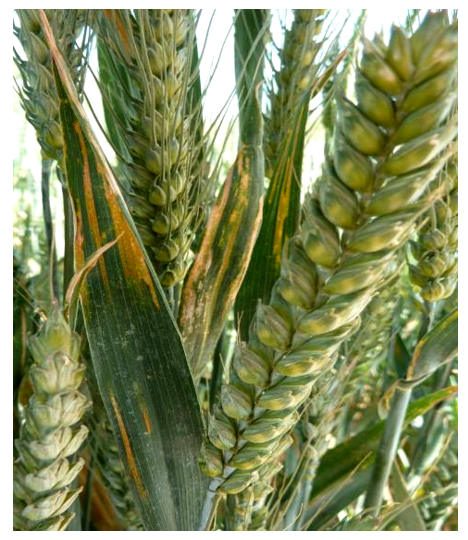
Rustwatch: A European early-warning system for wheat rust diseases
The European H2020 RustWatch programme (SFS-10-2017, Research & Innovation action), on wheat rust, entitled “A European early-warning system for wheat rust diseases” will provide an early warning system and better control of rust breeds present in Europe. This programme, led by the University of Aarhus in Denmark, started on 1st May 2018 for a duration of 4 years, involving 24 partners from 13 countries: research institutes, examination offices, technical institutes and breeders. Five major work-packages have been defined:

- WP1: Better knowledge of factor biology and their vectors
- WP2: Disease prevention through host resistance
- WP3: Stakeholder networks, infrastructure sharing and case studies
- WP4: Information and Data Management Integration
- WP5: Coordination

RustWatch is based on a multi-stakeholder and multi-network approach, such as the EU Value for Cultivation and Use (VCU) registration network, and on the sharing of communication and research infrastructures. GEVES is a task leader within WP3, contributing to the early identification of new yellow rust virulence races, by using a harmonised differential host range in 63 sites of the European VCU network, with 20 institutes and 17 countries, including partners and stakeholders.
This project has received funding from the European Union’s Horizon 2020 research and innovation programme under grant agreement No 773311.
DONOBT: Study on the feasibility of and methods for taking into account data produced by breeders for variety registration
The “Seed and Sustainable Agriculture” plan seeks to improve continuity for variety evaluation. Its actions include “Studying procedures for using data produced by plant breeders for official recognition”: this the aim of the Donobt project. Coordinated by GEVES and funded by CASDAR, it studies ways we can use trial data from plant breeders within the CTPS framework.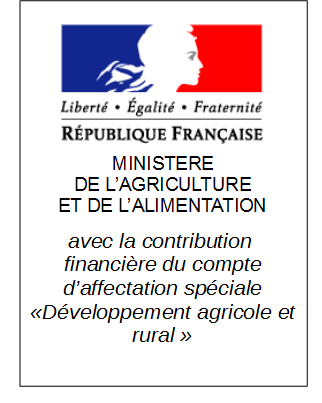
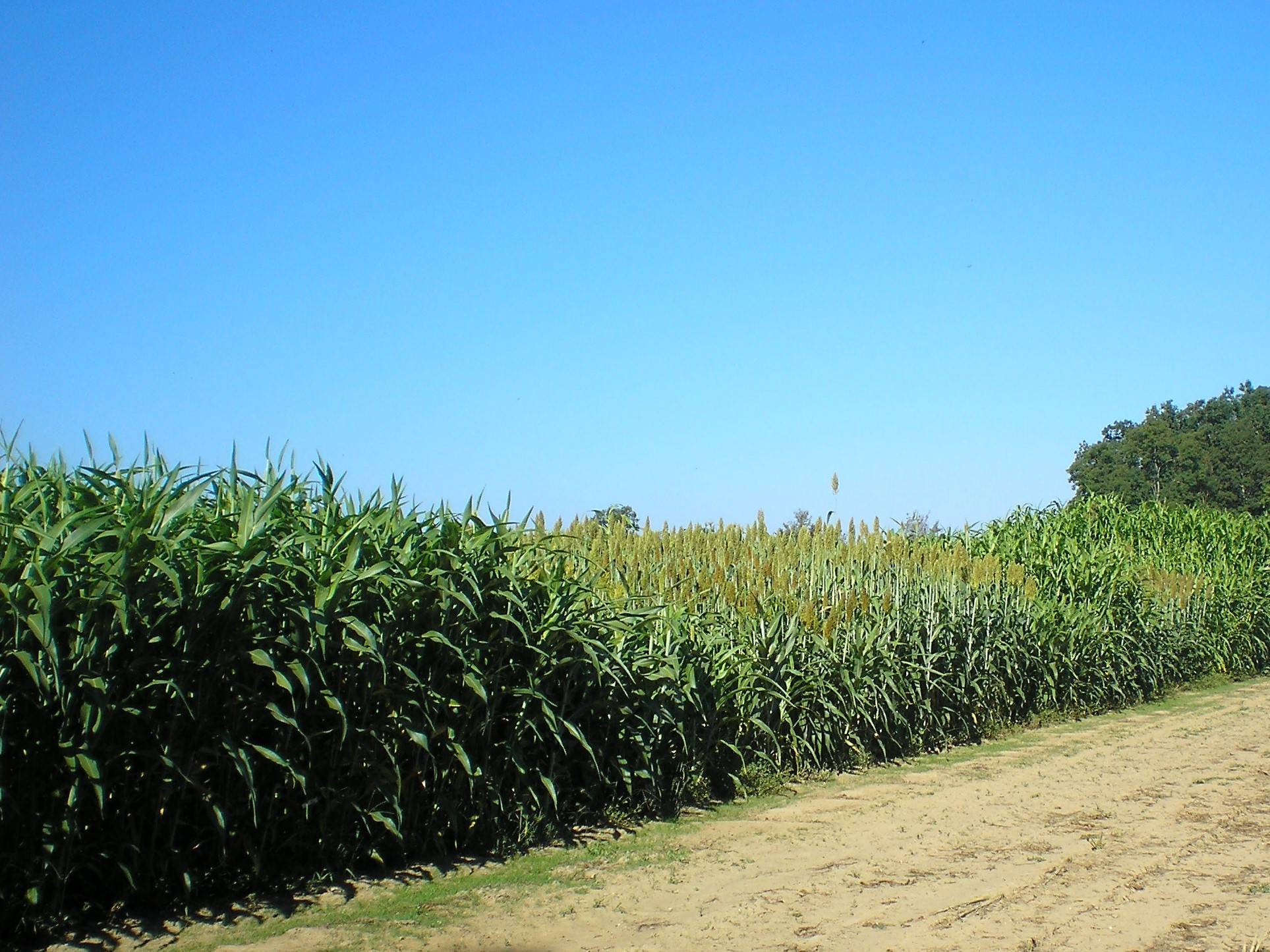
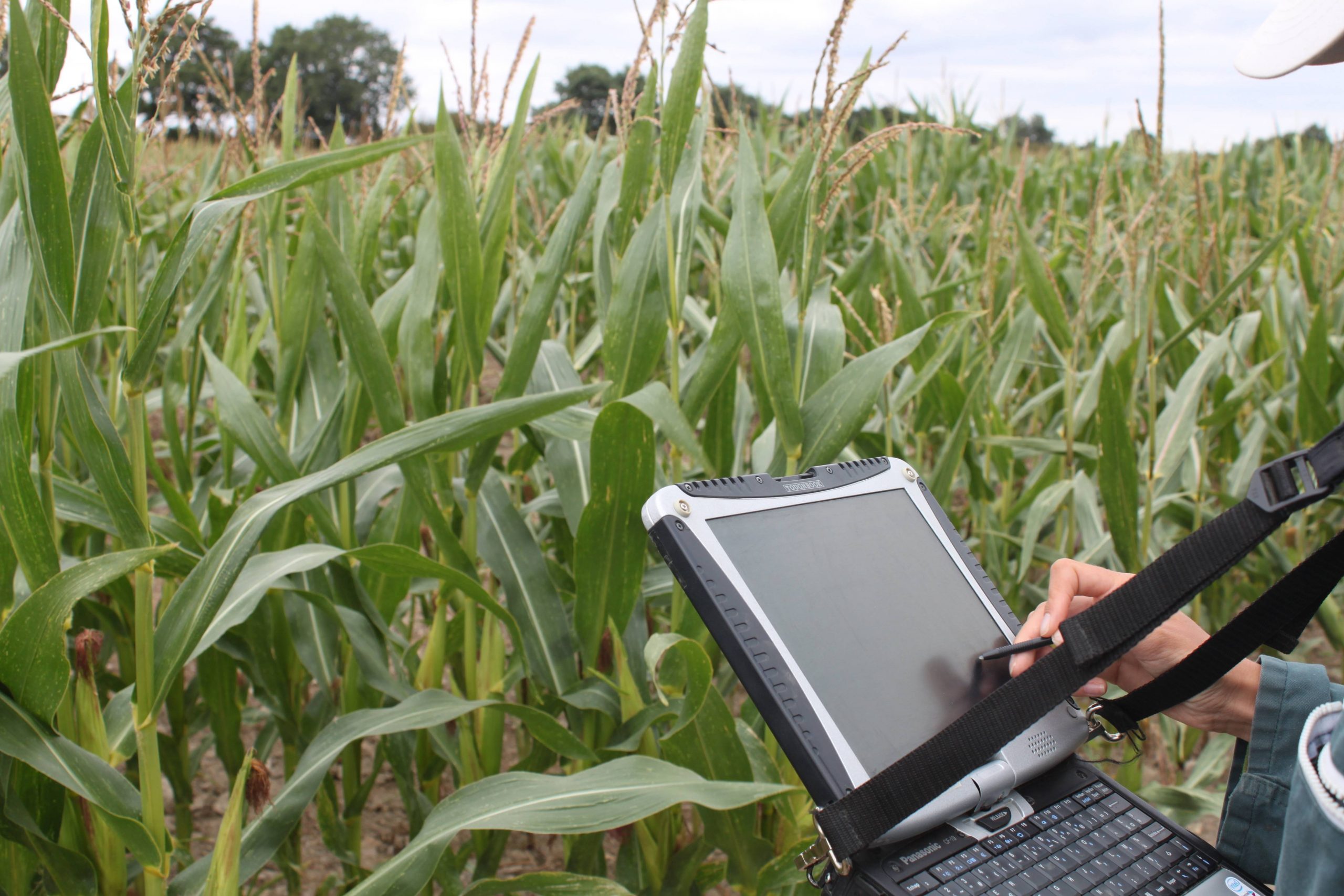
Optirés: Optimise variety trial networks using, in particular, methods which control spatial heterogeneity in the trial.
Carabiot: Develop a common approach amongst stakeholders in variety evaluation for characterising variety tolerance to major abiotic environmental stressors in trial networks (sugar beet, soft wheat, rapeseed, maize, sorghum, spring pea).
This project, funded by CASDAR, brings together organisations who develop models (INRA, research institutes) and potential users (GEVES, plant breeders, research institutes, INRA testing stations). It aims to develop tools for characterising variety testing environments, with a view to obtaining environmental co-variables providing dynamic descriptions of the climate and water and nitrogen resources. The selected strategy consists in using simulation models. The predictive capacity of these models has been evaluated using measurements taken in specially equipped trials.
By the end of the study, the different partners will have a common approach for characterising abiotic stressors in variety trial networks.
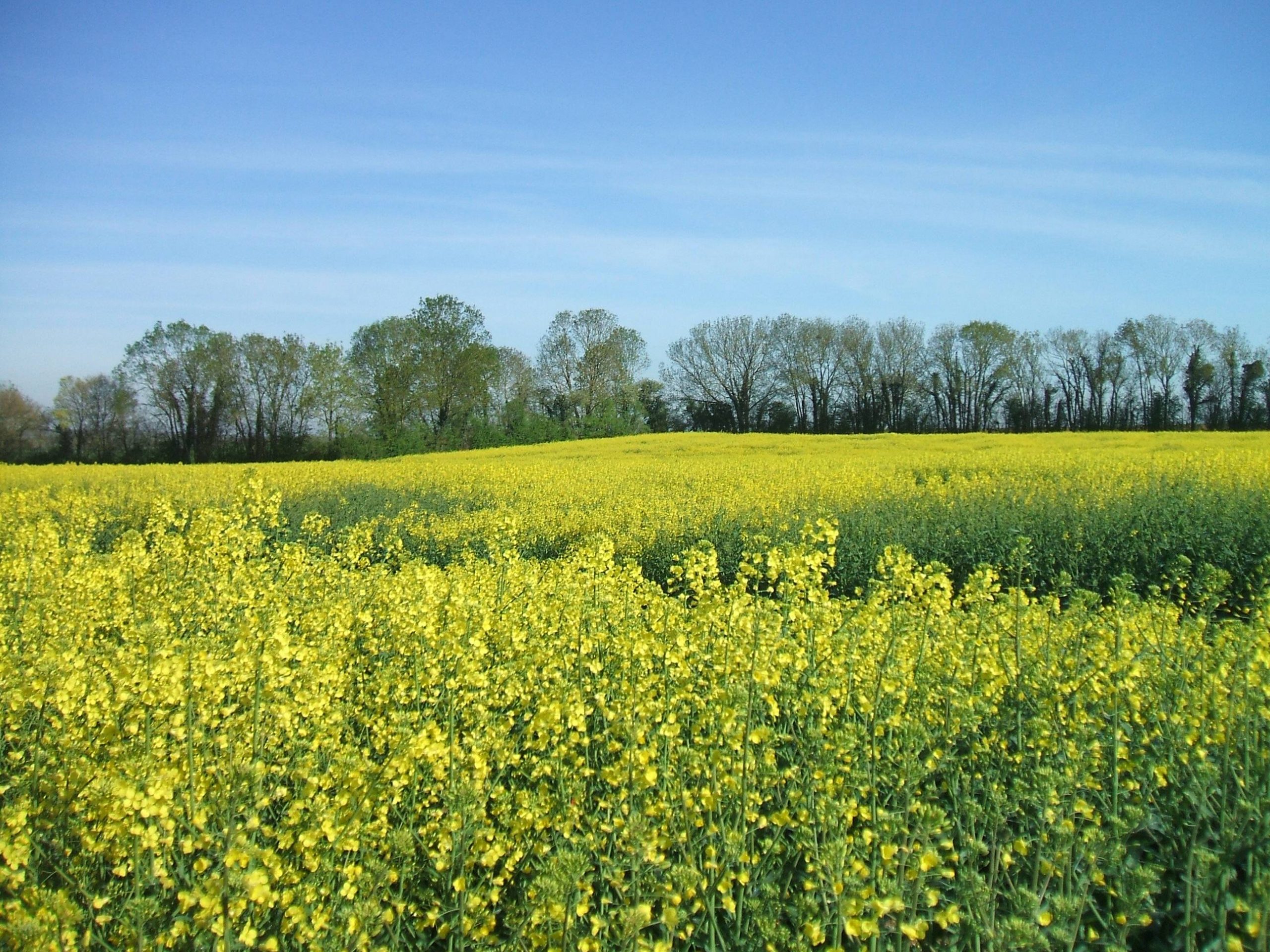
Caravage: Better characterise varieties in order to predict their performances in a wide range of environments
The CARAVAGE project, funded by CASDAR, aims to increase information on the sensitivity of varieties to abiotic stressors (primarily water stress) and predict their performances in a wide range of environments. Two approaches will be used:
- An approach using only data currently available in trial networks, but combining it with pre- and post-registration trials and accentuating the data collected using statistical models
- An approach which builds on the current system using specific trials (in field or using the phenotyping platform) which test the differential sensitivities of varieties to abiotic stressors (primarily water and nitrogen) for yield or morpho-physiological traits. Each time, models are used which simulate variety behaviour when interacting with the environment.
These two approaches will be tested on beetroot, maize, pea and sunflower, as part of the activities of the GIS GC HP2E “Variety Innovations” group.
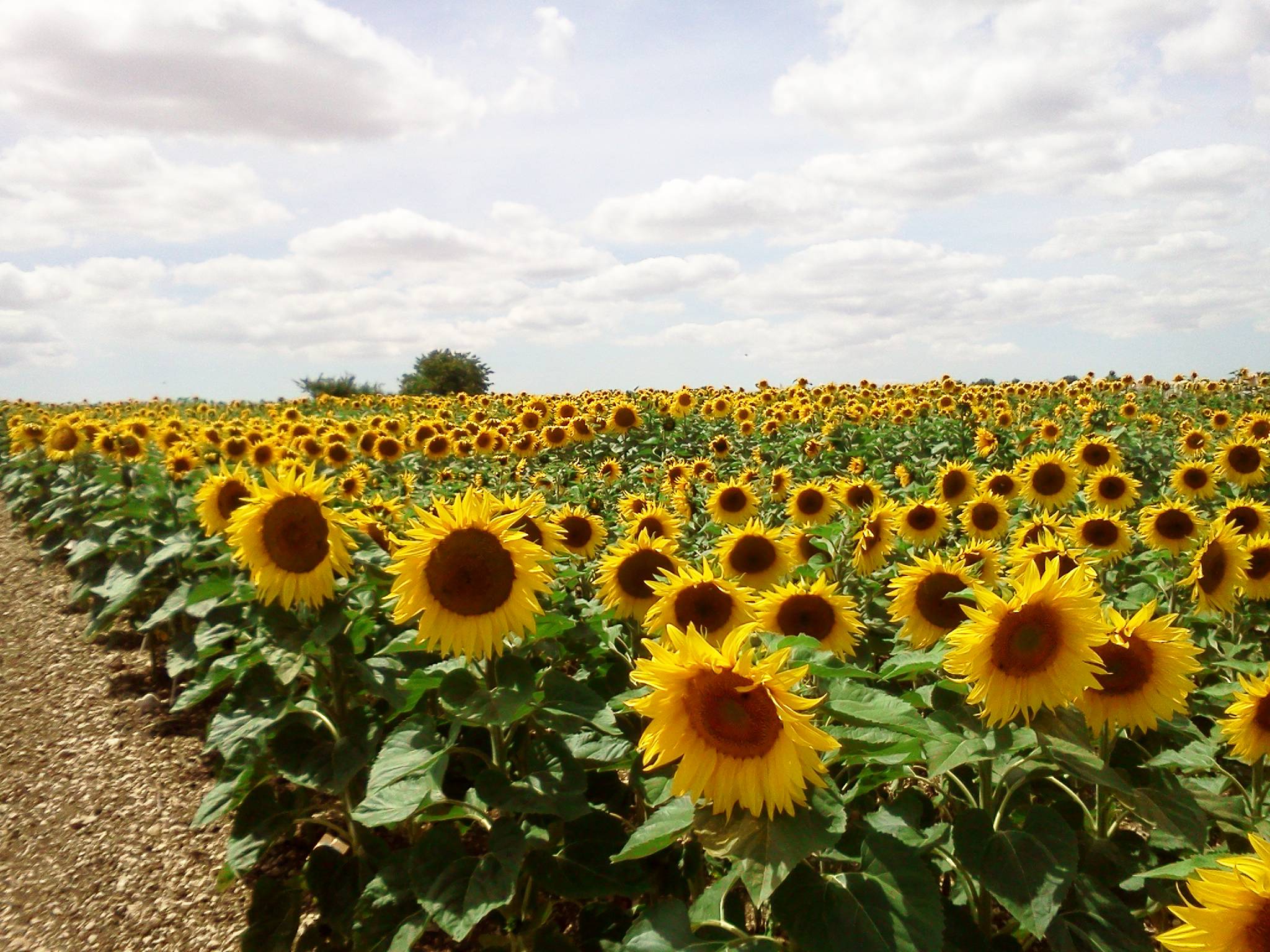
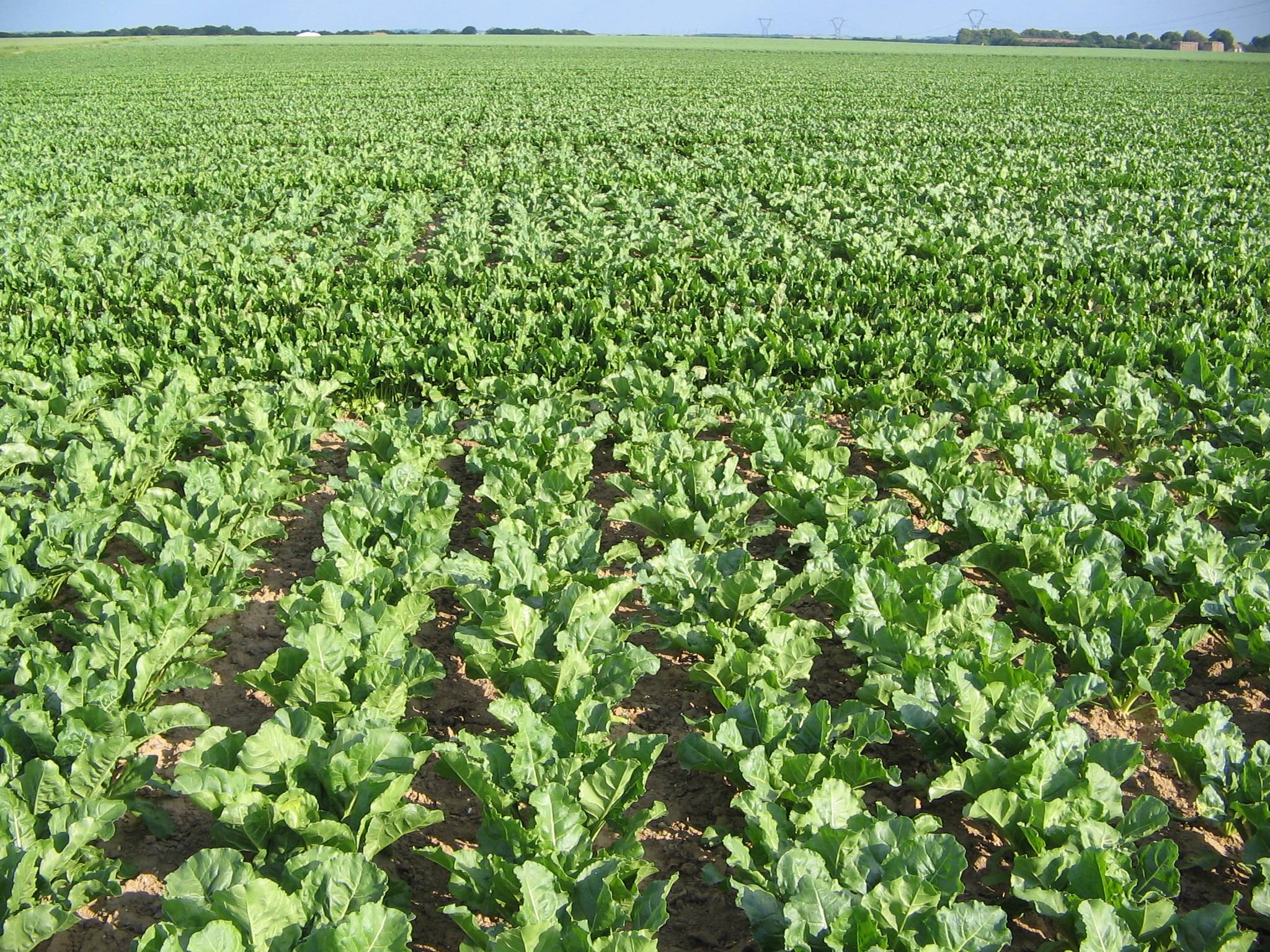
Archibet: Phenotyping of beetroot varieties to evaluate their capacity to compete with weed growth
Breedwheat : Développer de nouvelles variétés de blé pour une agriculture durable
The Breedwheat project aims to strengthen the competitiveness of the French wheat plant breeding and production sector, and to address society demands for sustainability and quality in agricultural production. The project combines new high throughput genotyping and phenotyping technologies to identify the genetic factors behind agronomical traits such as yield, quality and stress tolerance (pests, disease, drought, etc.). Funded by ANR “Future investments”, the Breedwheat project is headed by INRA Clermont-Ferrand-Theix. It brings together 26 partners, including 11 private companies from the sector.
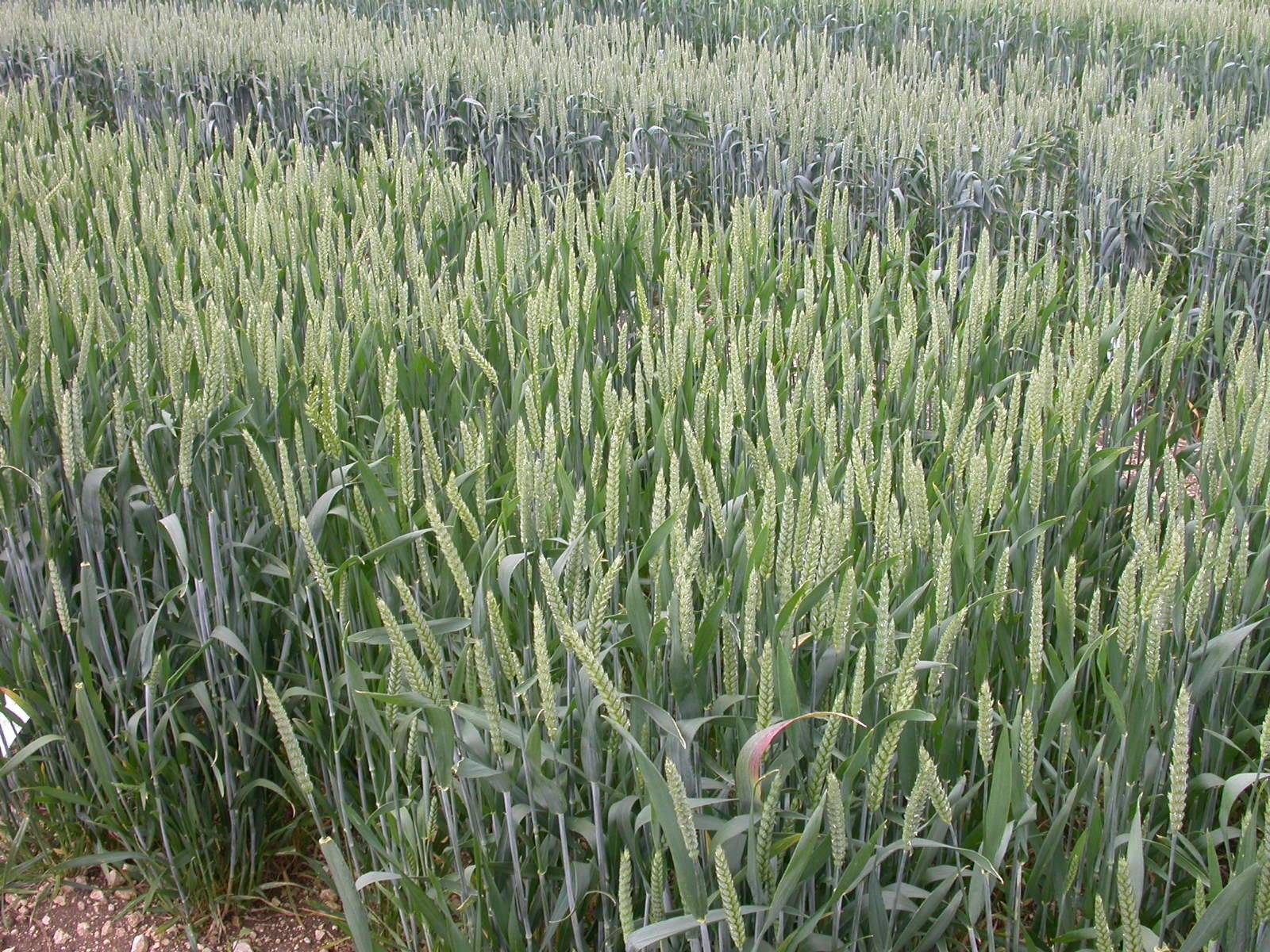
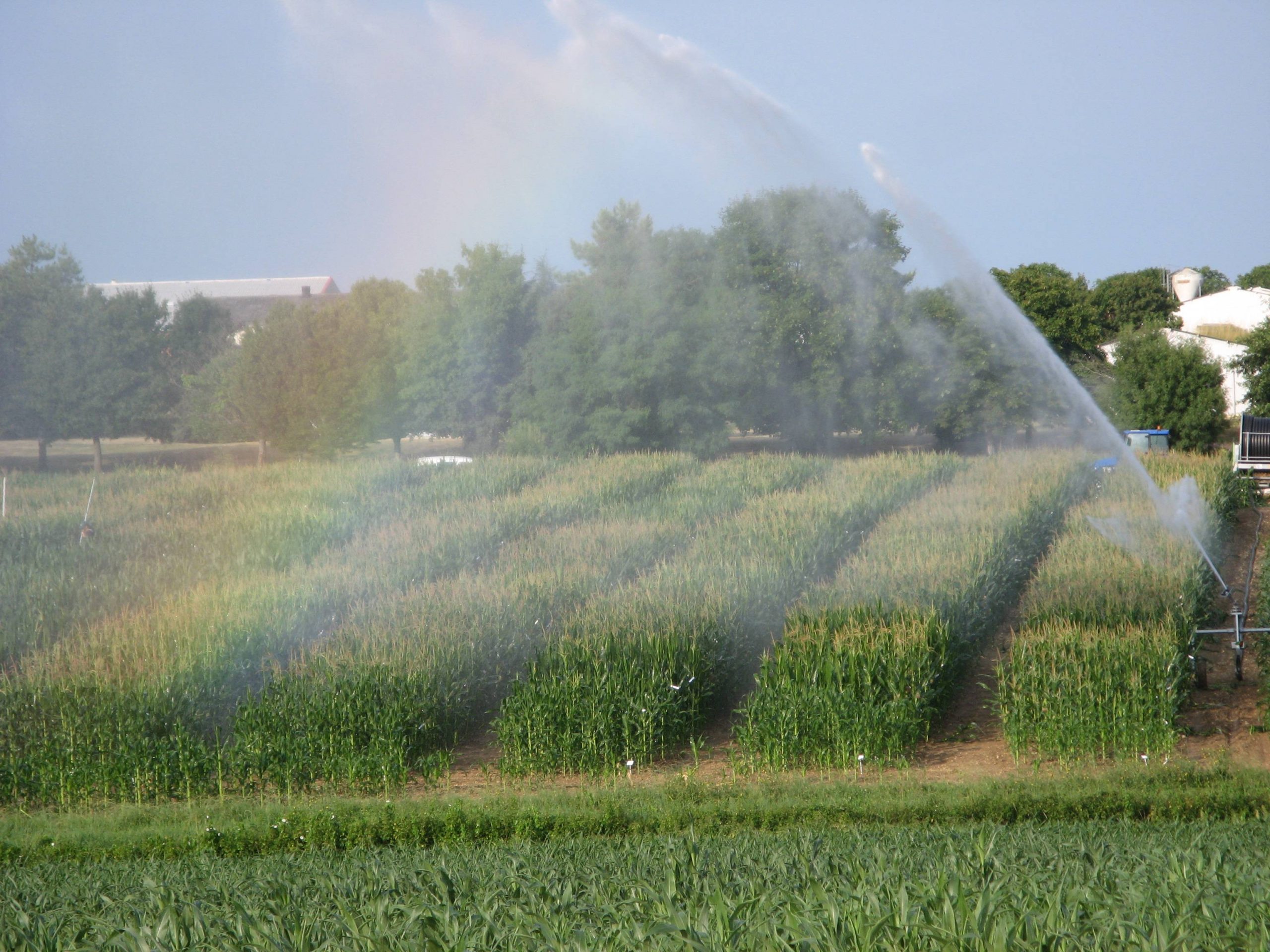
Amaizing: Develop new maize varieties for a sustainable agriculture
AMAIZING is designed to support the competitiveness of the French maize breeding sector and to meet society demand for sustainability and quality. It combines two main axes, phenotyping and genotyping, using high throughput techniques to identify the factors behind agronomic traits such as yield, quality, and abiotic stress tolerance. Funded by ANR “Future investments”, the project is coordinated by INRA Versailles and brings together 24 public and private partners.
Straw cereals: Refinement of scoring methods for varietal resistance to pathogens and study of the evolution of resistance levels in the French Catalogue
This methodological research project is funded by CASDAR and coordinated by GEVES in partnership with the ARVALIS plant Institute. It has helped to improve and refine the CTPS scoring methods of straw cereals variety resistance to pests and pathogens. A new multi-annual listing procedure referred to as TROCADERO, was developed at GEVES to define the VCUS ratio. The rating methods used were validated for common wheat by the VCUS (Value for cultivation, use and sustainability) and bioagressors expert commissions and outlined in the CTPS straw Cereals Section in October 2014 and January 2015. Since 2014-2015, ten characters can be rated by the TROCADERO method for registration of common wheat varieties in the French catalogue: Fusariose, Septoriose (S. tritici), eyespot, yellow rust, brown rust, powdery mildew, sprouting, height, alternative and lodging. An intermediate rating by the end of the first year may also be issued.
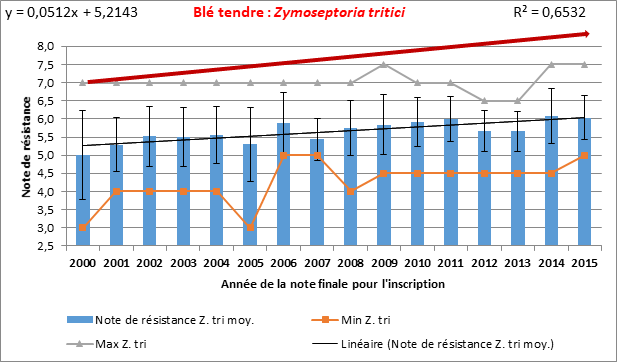
Carie ABBle - Common bunt: study of the variability of populations in France for the development of a varietal resistance test for the registration of varieties of common wheat in Organic Farming
This project, coordinated by GEVES and funded by CASDAR, is conducted in partnership with ITAB, FNAMS, Arvalis Institut du Végétal, FREDON Nord Pas-de-Calais, and Chamber of Agriculture 26. It aims to define the predominant virulences in France, and use these strains to develop a variety resistance test for registering soft wheat varieties in the Catalogue under organic farming. It will also help to reduce the number of treatments used on conventional seeds, as anticipated in the Ecophyto II plan, and in support of organic farming which is virtually impossible due to this disease.
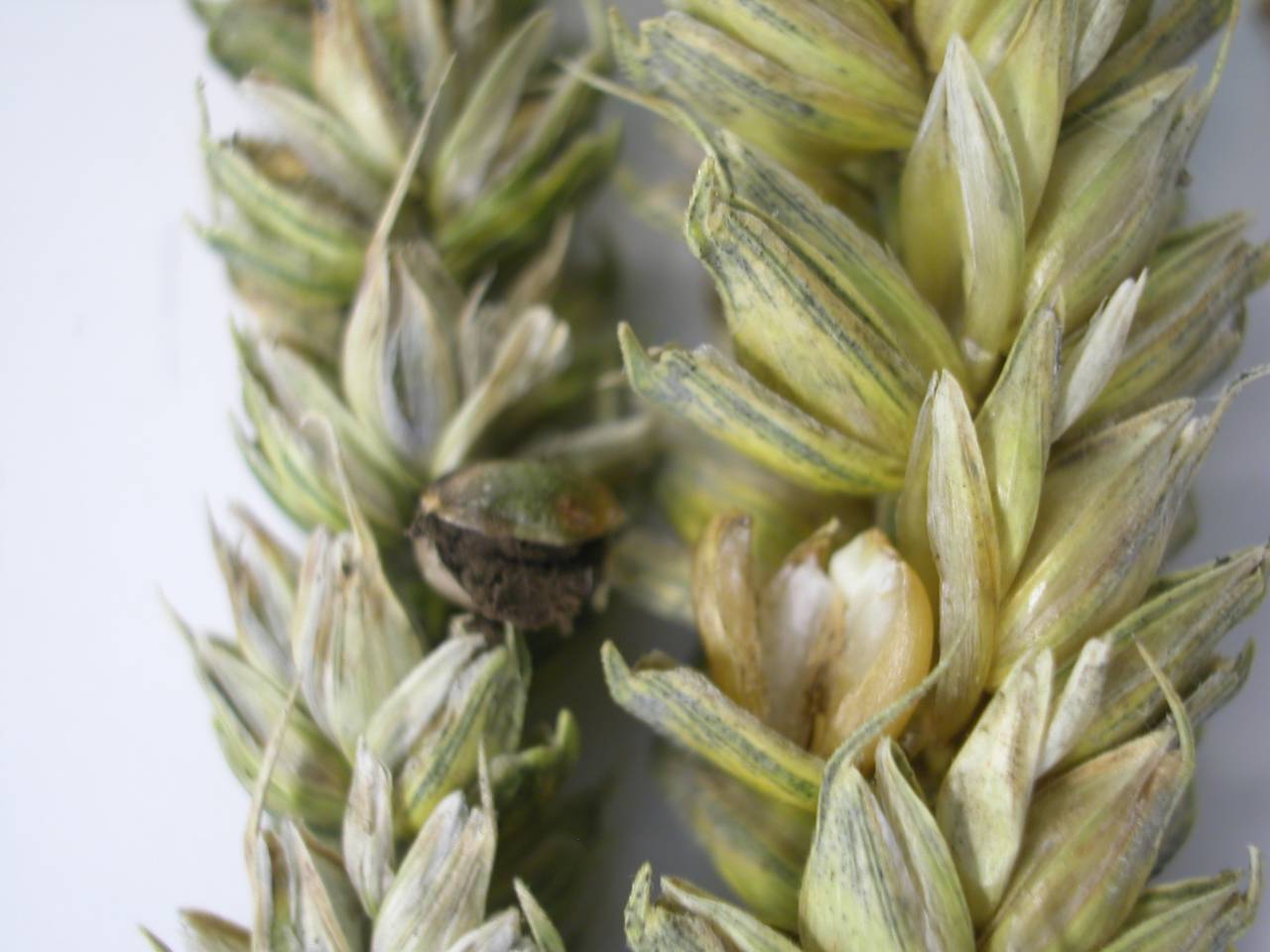
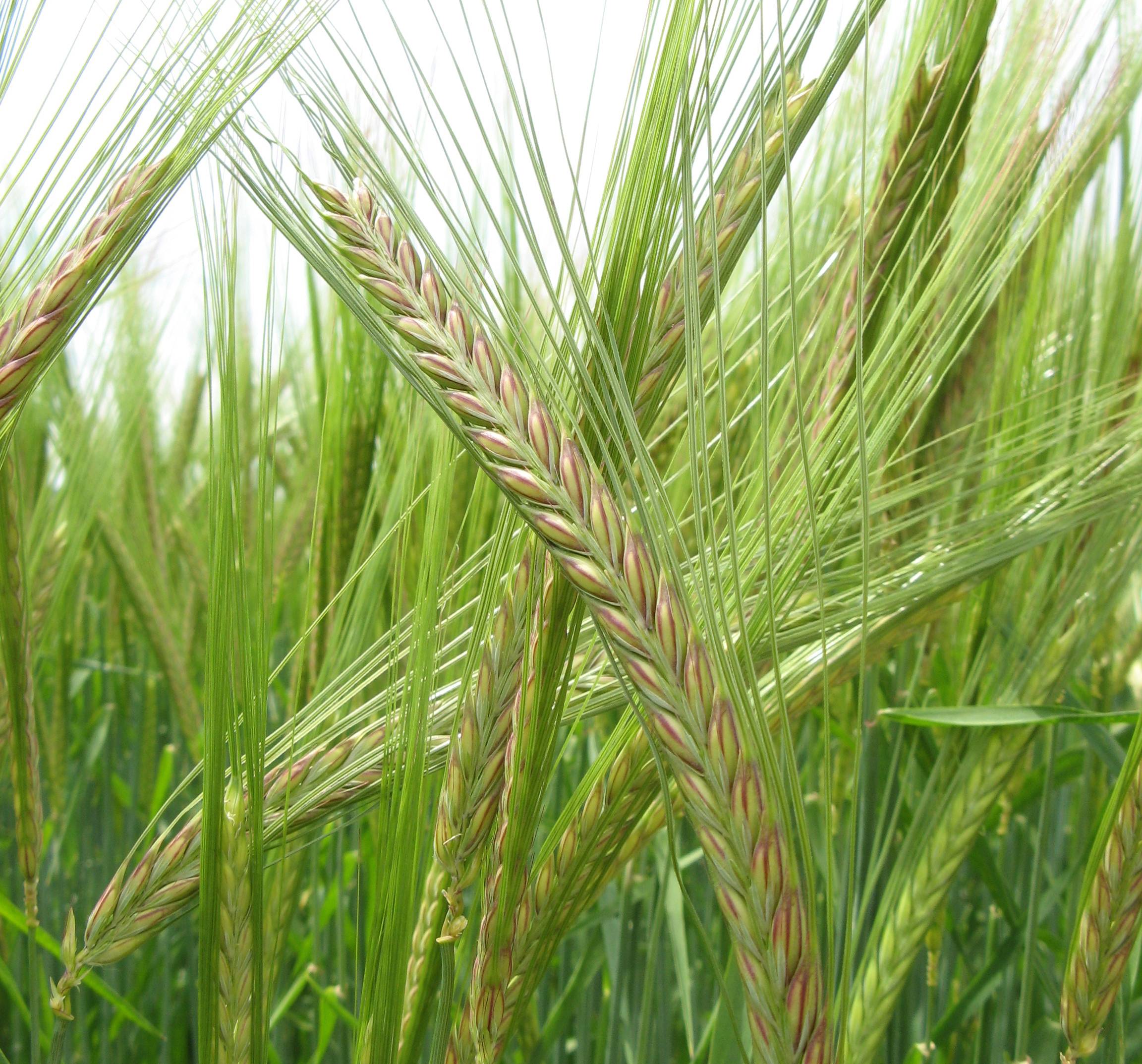
Mosa Hordeum
This project, funded by the FSOV and coordinated by GEVES, involves the whole seed sector. It aims to :![]()
i) define and map predominant viruses and pathotypes that appear in the barley mosaic complex,
ii) assess the detrimental nature of mosaics in terms of yield, and identify efficient resistant genes,
iii) evaluate the impact of impacts on technological and sanitary quality.
Publications linked to this project featured in international peer-reviewed journals:
- Candresse T., Marais A., Sorrentino R., Faure C., Theil S., Cadot V., Rolland M., Villemot J., Rabenstein F., Complete genomic sequence of Barley (Hordeum vulgare) endornavirus (HvEV) determined by next generation sequencing. Archives of Virology. 161:741–743. DOI: 10.1007/s00705-015-2709-3
- Villemot, J. and Rolland, M., A dCAPS assay detects and characterizes BaYMV according to its ability to overcome rym4-mediated resistance. Journal of virological methods, 234, pp.101-106. DOI: 10.1016/j.jviromet.2016.03.019
IRIGAM: Identification of resistance to infection of grains by Fusarium graminearum and to mycotoxins accumulation in French wheat varieties using new phenotyping technologies
Supported by the Ecophyto system and in cooperation with the French National Office for Water and Aquatic Environments (ONEMA), this project is coordinated by the UMR GDEC unit of INRA Clermont Ferrand in partnership with GEVES, Florimond Desprez and the Plant Molecular Biology Institute at CNRS. The project aims to overcome a number of obstacles linked to phenotyping in order to measure DON levels or evaluate symptoms on the grain or ear, to identify French varieties of wheat showing RKI and RTA resistance, and identify the genomic regions involved in this type of resistance through a genetic association study.
GEVES’s participation in this project focuses on comparing methods for estimating the quantification of mycotoxins (Deoxynivalenol) using the Videometer, Elisa tests, qPCR, and NIRS.
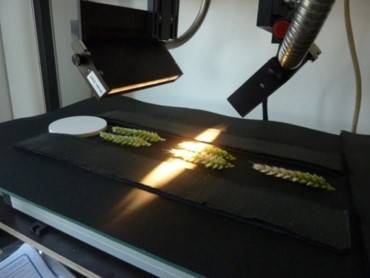
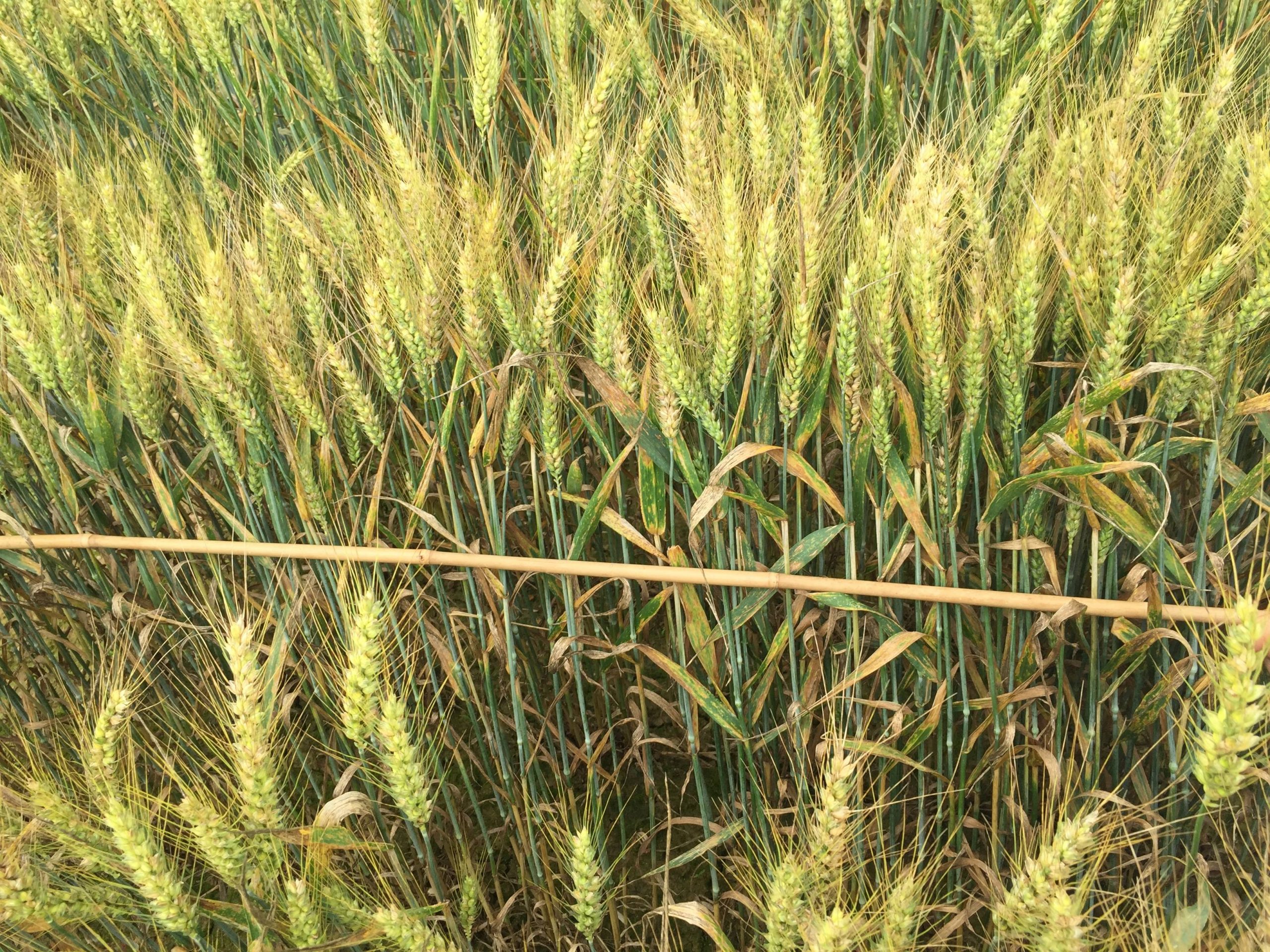
Microdochium spp.: Better understand the occurrence and epidemiology of this pathogen, and the behaviour of soft wheat varieties in response to it
This project, coordinated by Florimond Desprez and funded by the FSOV, associates GEVES, the UFS and Arvalis. It aims to accurately assess the presence and occurrence of Microdochium in France, to gain a better understanding of its development in fields, and to determine the behaviour of current soft wheat varieties. The findings will be used to provide plant breeders with the necessary tools to create varieties that are resistant to Microdochium.
For this project, GEVES is working on developing a phenotyping method using multispectral imagery (Videometer) to quantify the number of grans contaminated with Microdochium, with a view to using this method in future resistance tests for the registration of varieties in the French catalogue.
![]()
Improvement of the evaluation of courgette resistance to the Cucumber Mosaic Virus (CMV), Zucchini yellow mosaic virus (ZYMV) and Watermelon mosaic virus (WMV).
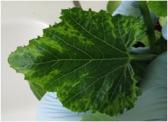 This project is funded by CASDAR and comprises GEVES, INRA, and seed companies. It has developed a resistance evaluation test for courgette varieties to three viruses: CMV, WMV and ZYMV. The protocols are now available for the CTPS and can be proposed to the CPVO and UPOV. The evaluation of the resistance of courgette varieties to these three viruses can be carried out by the SNES’s pathology laboratory on request from seed sector professionals.
This project is funded by CASDAR and comprises GEVES, INRA, and seed companies. It has developed a resistance evaluation test for courgette varieties to three viruses: CMV, WMV and ZYMV. The protocols are now available for the CTPS and can be proposed to the CPVO and UPOV. The evaluation of the resistance of courgette varieties to these three viruses can be carried out by the SNES’s pathology laboratory on request from seed sector professionals.
Corkyres: Development of a test to evaluate tomato variety resistance to corky root.
This project is funded by CASDAR and comprises GEVES, INRA and seed companies. It focuses on developing a test for evaluating the resistance of tomato varieties to corky root. The project introduced a new DUS characteristic to the CTPS for registering varieties in the Catalogue. This protocol, which is very important for rootstock DUS testing, will be presented to the CPVO and UPOV. The evaluation of the resistance of tomato varieties to corky root can now be carried out by the SNES pathology laboratory upon request from seed sector professionals.
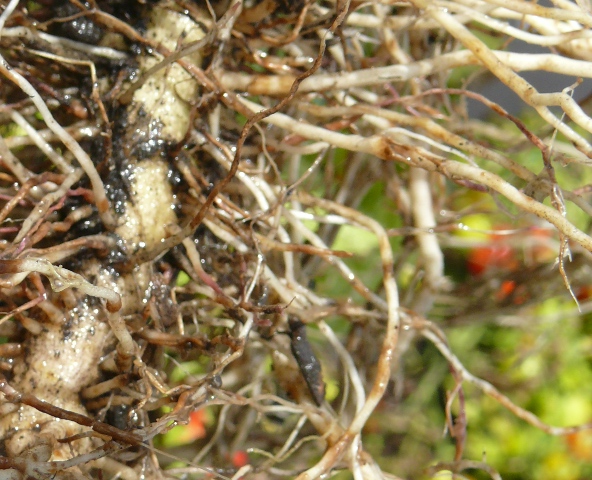
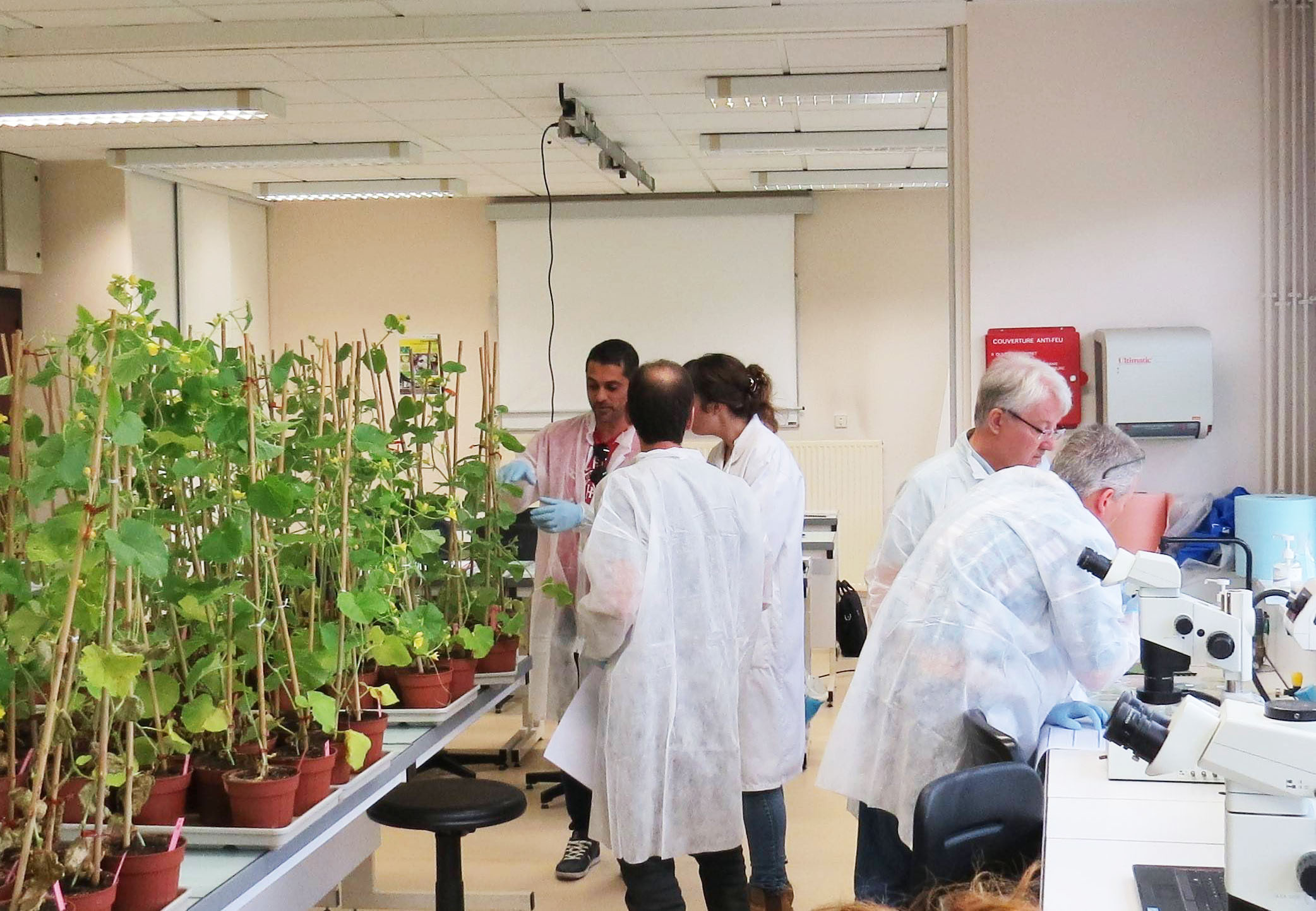
Harmores 3 : Harmonisation of resistance tests to diseases for DUS testing -3
This project, coordinated by GEVES and funded by the CPVO, involves eight European examination offices, a technical centre, and seed companies from the European Seed Association(ESA). The project aims to harmonise resistance tests for 7 pathogens and pests of tomato, pea and melon for the CPVO, and to establish new official protocols.



